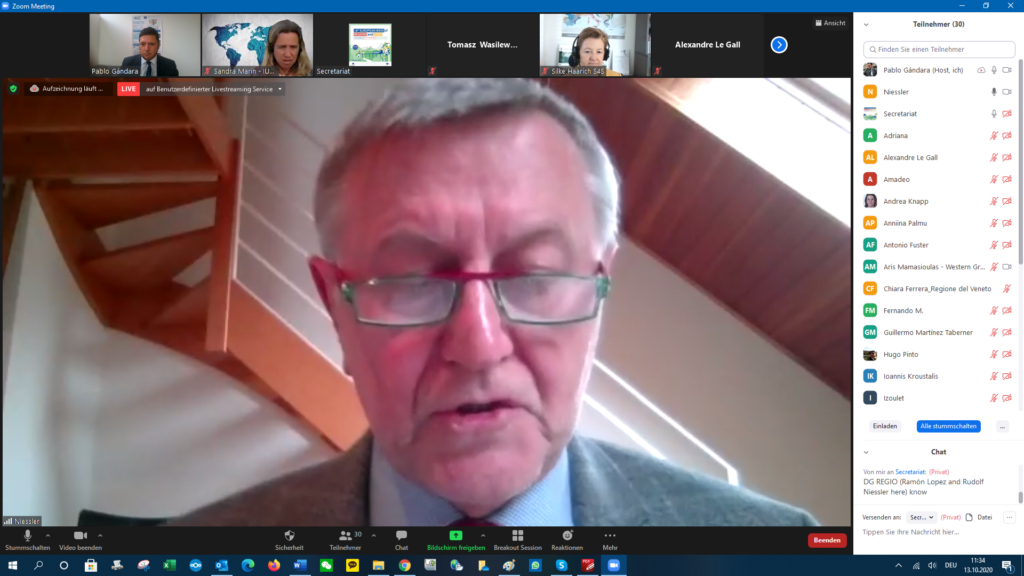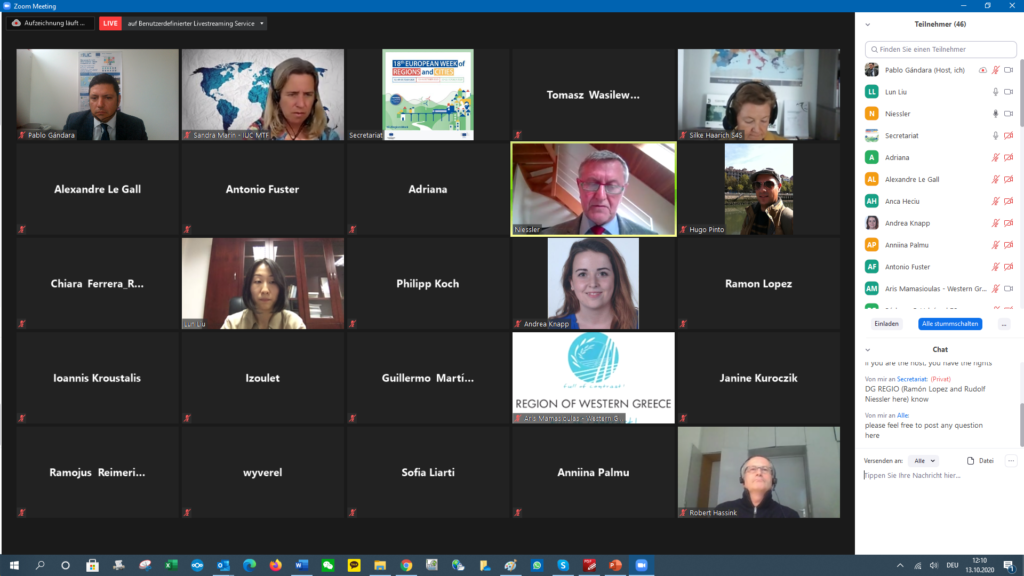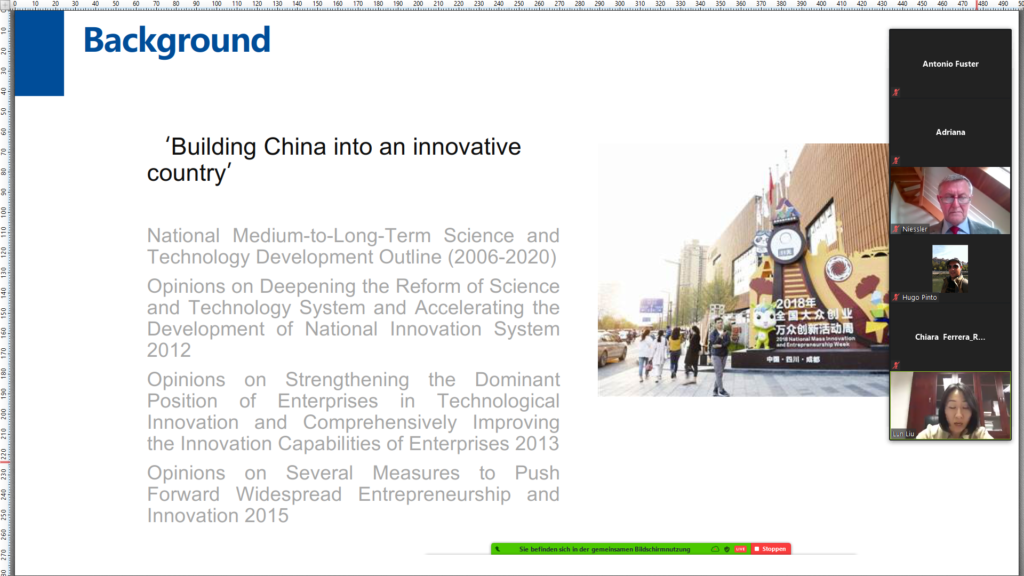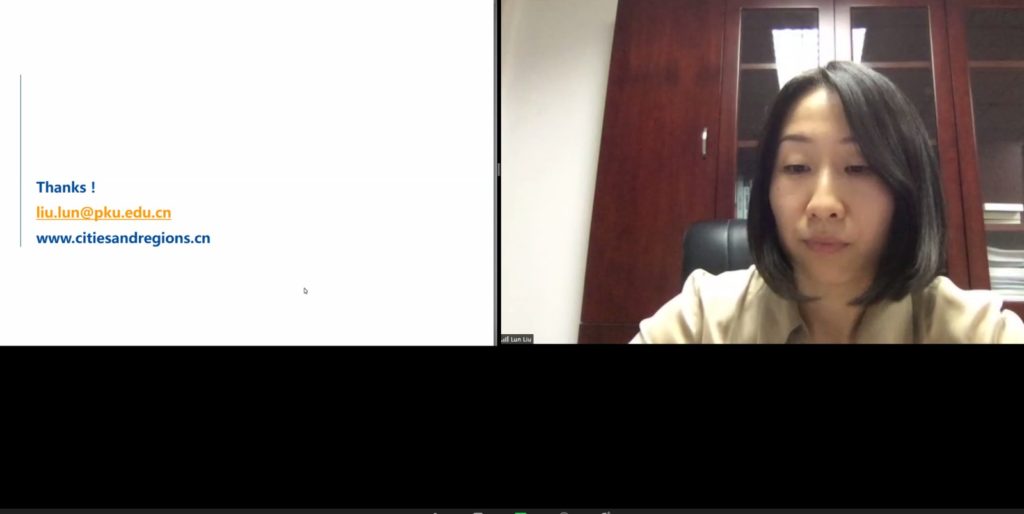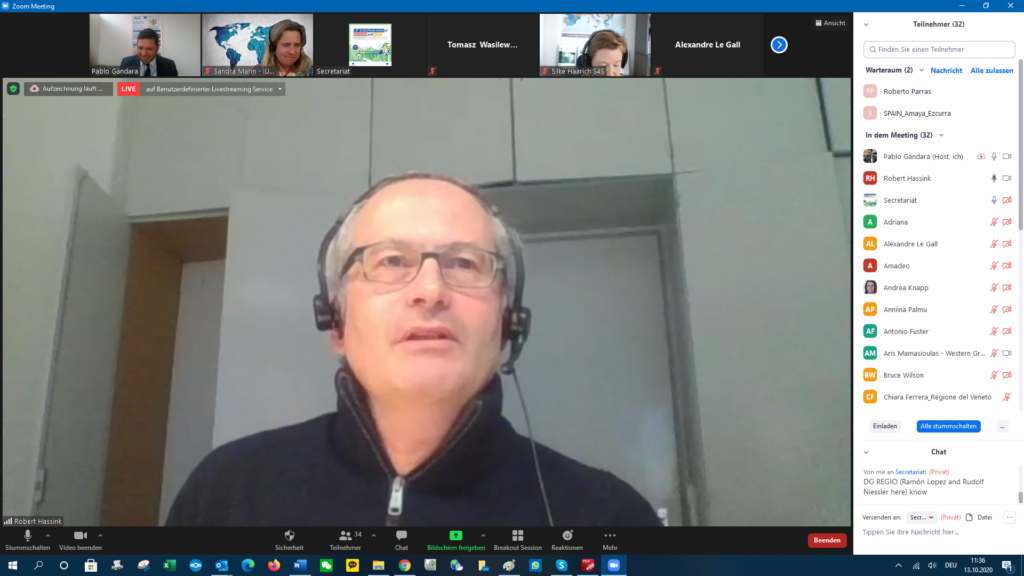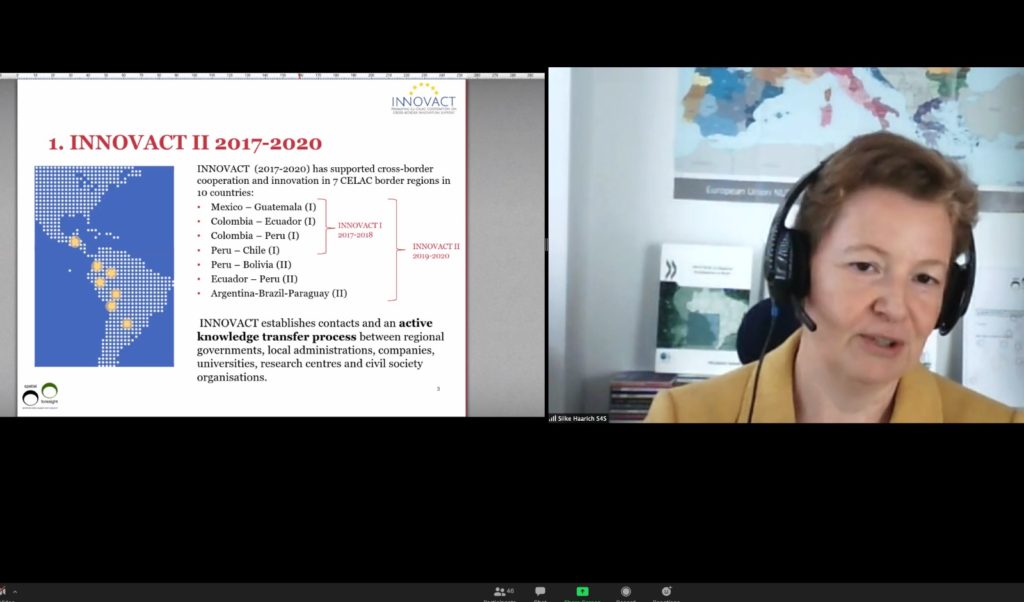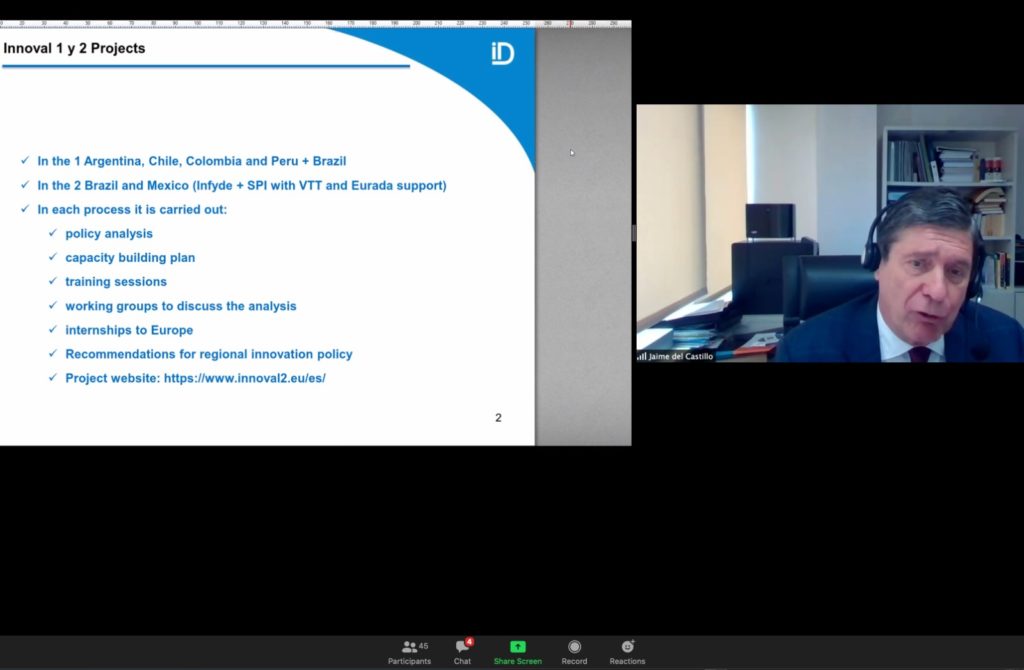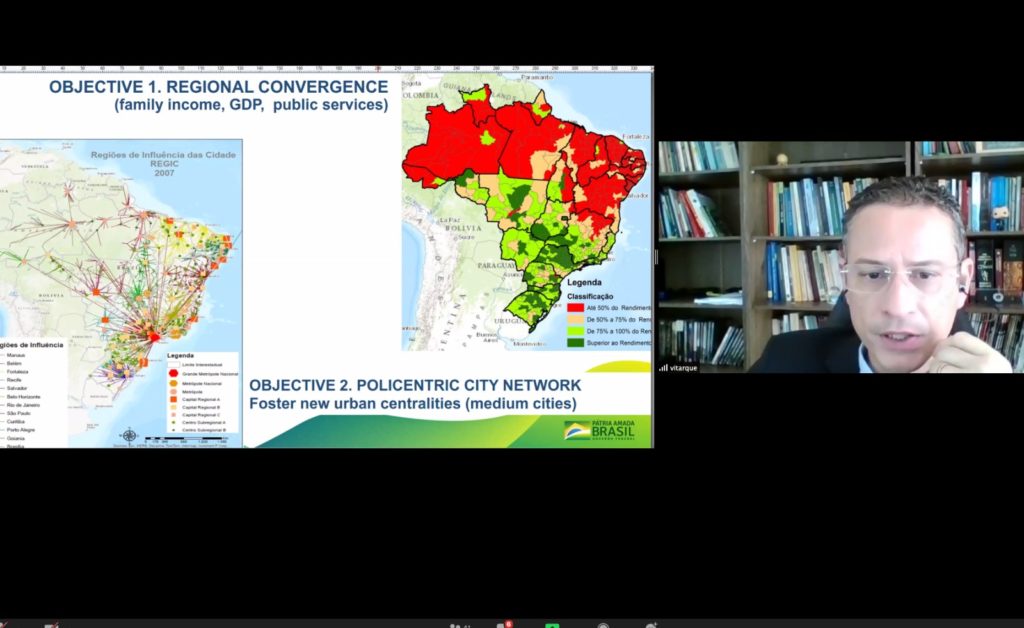Supporting the Directorate-General Regional and Urban Policy (REGIO), the IUC team co-organised today an online workshop on regional innovation. Around 50 participants joined the event that focused on the concept of smart specialisation as a means of improving investment in regional development. Dr. Rudolf Niessler – Principal Advisor at DG REGIO – stated that over the past years and building on a series of success stories at EU level, more than 120 Smart Specialisation Strategies (RIS3) have been developed in EU regions and Member States. Moreover, over 30 interregional partnerships on agri-food, industrial modernisation and energy have boosted and localised innovation policies.
Professor Robert Hassink from the University of Kiel assessed the EU smart specialisation approach, focusing on the entrepreneurial discovery process (EDP) that enables entrepreneurial actors to explore innovative activities leading to a transformation of the regional economy. Mr Hassink posted few critical questions to the absorption capacities of smart specialisation by regions with weak institutional capabilities and lacking strong horizontal measures. Here, endogenous potentials might be too weak to be integrated into the global value-chains. He also referred to the deglobalization process partly occurring since the COVID-19 crisis and trade tensions.
Professor Liu Lun from the School of Government and Management at Peking University introduced the EU China Regional Policy Study currently under elaboration. She introduced few achievements of China’s regional innovation policies, including the high number of patent grants and citations in peer-reviewed papers. Shew also assessed few challenges including the regional disparity and the marketisation rate of invention patents by universities. Prof. Liu introduced the classification of regions in China, including provinces, macro-regions and city-clusters. She explained the stakeholders’ engagement during the innovation policy-making at provincial and local level, focusing on the quadruple helix cooperation. Although there are national development policies, there is no one-size-fits-all policy in Chinese regions and cities, since these ultimately decide which areas to focus on. Prof. Liu provided few examples from Shandong, Jiangsu and Chengdu-Chongqing. She recommended European and Chinese regions to exchange experiences on stakeholders’ engagement (EDP) and identify business opportunities.
Dr. Silke Haarich from Spatial Foresight referred to the EU-CELAC INNOVACT Platform currently under implementation. The project aims to facilitate inter-continental learning and territorial cohesion especially to diffuse the EU regional policy experience and good practices in Latin America. Work focuses on innovation policymakers in border regions. Dr. Haarich referred to cross-border cooperation among seven border regions in ten Latin American countries, which have led to cross-border action plans. In total, over 1.800 have been involved in INNOVACT activities, she said. Examples of actions implemented included IT solutions for regional value-chains and measures to promote cross-border tourism.
Dr. Jaime del Castillo from INFYDE introduced the INNOV-AL Platform, which is supporting regional innovation and decentralisation in six Latin American countries. Dr. del Castillo referred to policy analysis, capacity building and training measures, including internships of Latin American experts in Europe. He introduced key takeaways to consolidate innovation systems at the regional level in Latin America, including multilevel governance models, increasing considerably the R&D investment and strengthen decentralisation backed with stable financial resources. Collaboration with the European Union and European regions accelerates the smart regional specialization process, he said. He gave an overview of current innovation policy developments in Latin America and the effects of the COVID19 pandemics in the exchange activities with Europe. Virtual measures implemented in collaboration with EURADA have enabled regions from both sides to continue cooperation.
Dr. Vitarque Coelho from the Ministry of Regional Development in Brazil presented the new national policy for regional development (NPRD) launched in May 2019. The policy is based on a territorial approach for several government levels, i.e. macro-regions, sub-regions, and special subregions. Dr. Coelho introduced the four objectives of the NPRD, namely regional convergence, polycentric development, boosting regional competitiveness and achieving economic diversification. He provided several examples of adding value to the strategic value chains for commodities like coffee and cacao. The NPRD encouraging entrepreneurship and productive inclusion by strengthening networks of productive and innovative local systems, existing or potential, in order to integrate them with regional, national or global systems – he said.
The discussion focused on the lack of innovation absorption capabilities in less-favoured regions, the need to create local knowledge to unlock the potential of the RIS3 approach, the importance of the entrepreneurial discovery process (EDP) to sustain innovation in the regions and the benefits of international cooperation for European regions.
Agenda
International cooperation regional innovation programme
Presentations
04_Del Castillo_ERW2020_INNOVAL_English
05_RDNP – National Integration Routes – Webinar UE v2
Pictures



